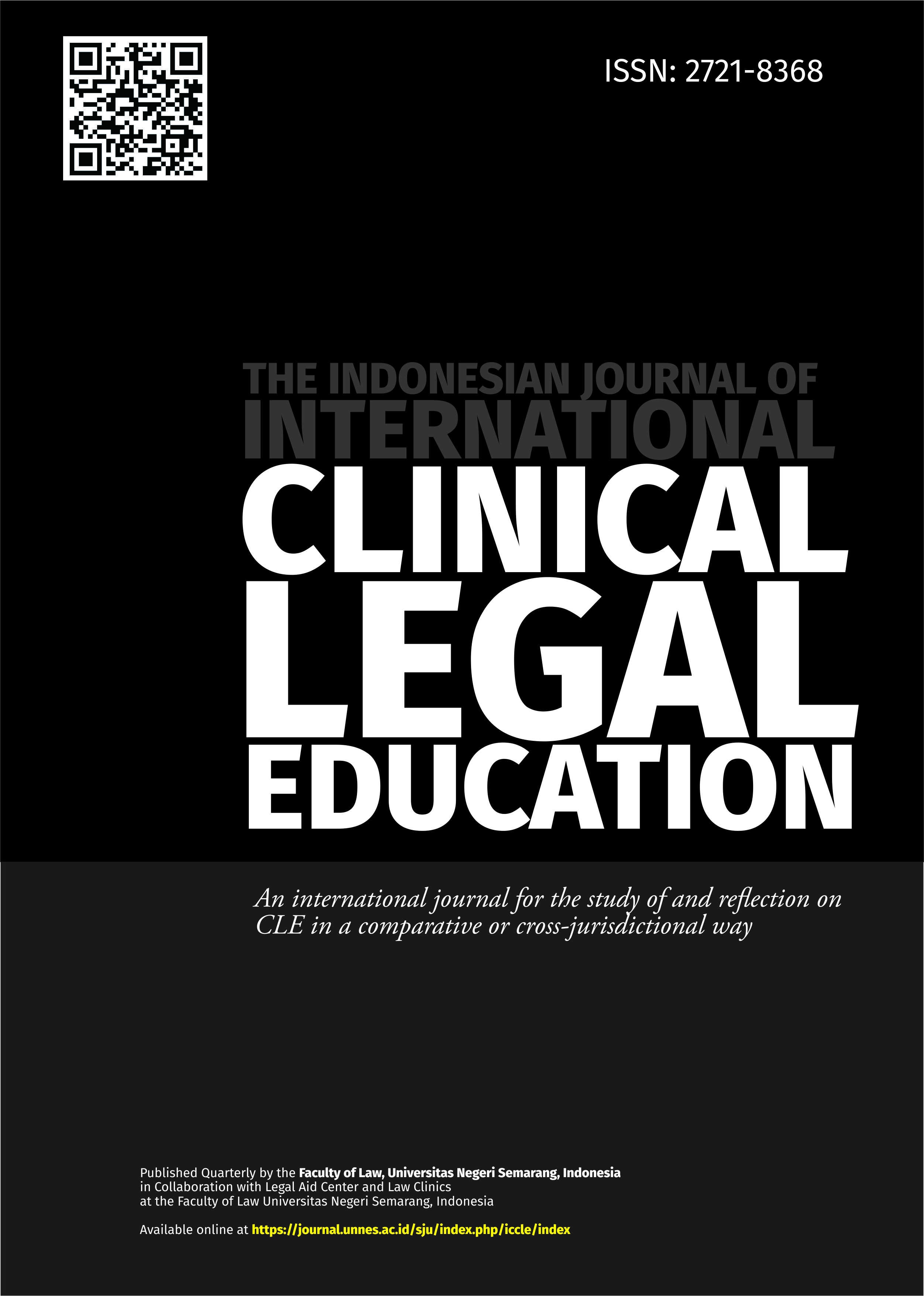Environmental Law Enforcement in Indonesia Through Civil Law: Between Justice and Legal Certainty
Main Article Content
Abstract
Enforcement of Environmental Law in Indonesia can be done in various ways. One way that can be done is to conduct a lawsuit in Civil Law to the competent court if the plaintiff suffers material or immaterial losses and suffers losses due to environmental damage around his area. There are various court decisions in the civil field, especially the new environmental scope. The new verdict can affect the growth and development of existing Environmental Law in Indonesia. If the plaintiff is the Ministry of Environment and Forestry who suffers material or immaterial losses, then the concept of proof in the judicial process can be called a strict liability suit. The problem written by the author in this journal is the enforcement of Environmental Law in Indonesia through Civil Law. In this journal, the writer uses the normative and juridical writing method, which is a legal writing which is carried out by analyzing secondary legal materials or library materials to find a solution to a legal problem that arises and uses a problem approach based on the laws or general legal rules regarding Environmental Law enforcement in Indonesia through Civil Law and problem approaches that are based on a conceptual basis. The results of research conducted show that to enforce Environmental Law based on Civil Law in Indonesia, judges not only apply existing legal regulations, but judges must also apply other judicial matters so that existing Environmental Laws in Indonesia can experience progress and rapid development.
Article Details

This work is licensed under a Creative Commons Attribution-ShareAlike 4.0 International License.
The copyrights of the article in Indonesian J. Int'l Clinical Leg. Educ. is on the Author(s), however, before publishing, it is required to obtain written confirmation from Author(s) in order to ensure the originality (Author Statement of Originality). The statement is to be signed by at least one of the authors who have obtained the assent of the co-author(s) where applicable. This work licensed under a Creative Commons Attribution-ShareAlike 4.0 International (CC BY-SA 4.0). All writings published in this journal are personal views of the authors and do not represent the views of this journal and the author's affiliated institutions.
References
Arumnadi, B. (2001). Hukum Internasional. IKIP Semarang.
Djafar, A. B. (2011). Penyelesaian Sengketa Bisnis Melalui Mediasi. Fakultas Hukum Universitas Pancasila.
Erwin, M. 2009. Hukum Lingkungan Pada Sistem Kebijaksanaan Pembangunan Lingkungan Hidup. Bandung: Refika Aditama.
Fakrulloh, Z. A. (2015). Penegakan Hukum Sebagai Upaya Menegakkan Keadilan. Jurnal Jurisprudence, 2(1), 24–25. https://publikasiilmiah.ums.ac.id/xmlui/bitstream/handle/11617/1034/2. ZUDAN.pdf?sequence=1.
Hamzah, A. (2005). Pelaksanaan Hukum Lingkungan di Indonesia. Sinar Grafika.
Haryadi, P. (2017). Pengembangan Hukum Lingkungan Hidup Melalui Hukum Perdata. Jurnal Konstitusi, 14(1), 134. https://doi.org/https://doi.org/10.31078/jk1416.
Husin, S. (2009). Implementasi Hukum Lingkungan di Indonesia. Sinar Grafika.
Keraf, A. S. (2010). Etika Dalam Lingkungan Hidup. Kompas Media Nusantara.
Mamlyuk, B. N. (2017). Analyzing The Polluter Pays Principle Through Economics and Laws. South Eastern Environmental Law Journal, 18(1), 281. https://papers.ssrn.com/sol3/papers.cfm?abstract_id=1679245.
Mauna, B. (2015). Hukum Internasional: Fungsi, Pengertian, dan Peranan Dalam Era Dinamika Global. PT. Alumni.
Mulyati, L. 1993. “Hukum Ganti Rugi Terhadap Pencemaran Lingkungan Ditinjau Dari Undang-Undang Nomor 4 Tahun 1982.” Jurnal Hukum Dan Pembangunan 5 (5): 464. https://doi.org/http://dx.doi.org/10.21143/jhp.vol23.n5.
Rangkuti, S. S. (2000). Beban Pembuktian dan Tanggung Jawab Pencemar Pada Kasus Pencemaran. Skrep dan Walhi.
Republic of Indonesia. (2009). Law Number 32 of The Year 2009 About Environmental Protection and Management, retrieved from peraturan.bpk.go.id.
Sands, P. (2003). Principles from International Environmental Law. Cambridge University Press.
Santosa, M. A. 1997. Penerapan Asas Tanggung Jawab Mutlak (Strict Liability) Pada Bidang Lingkungan Hidup. Jakarta: ICEL.
Santosa, M. (2001). Pemerintahan yang Baik Dalam Hukum Lingkungan. ICEL.
Soekanto, S. (2007). Dasar Penelitian Hukum. Universitas Indonesia Press.
